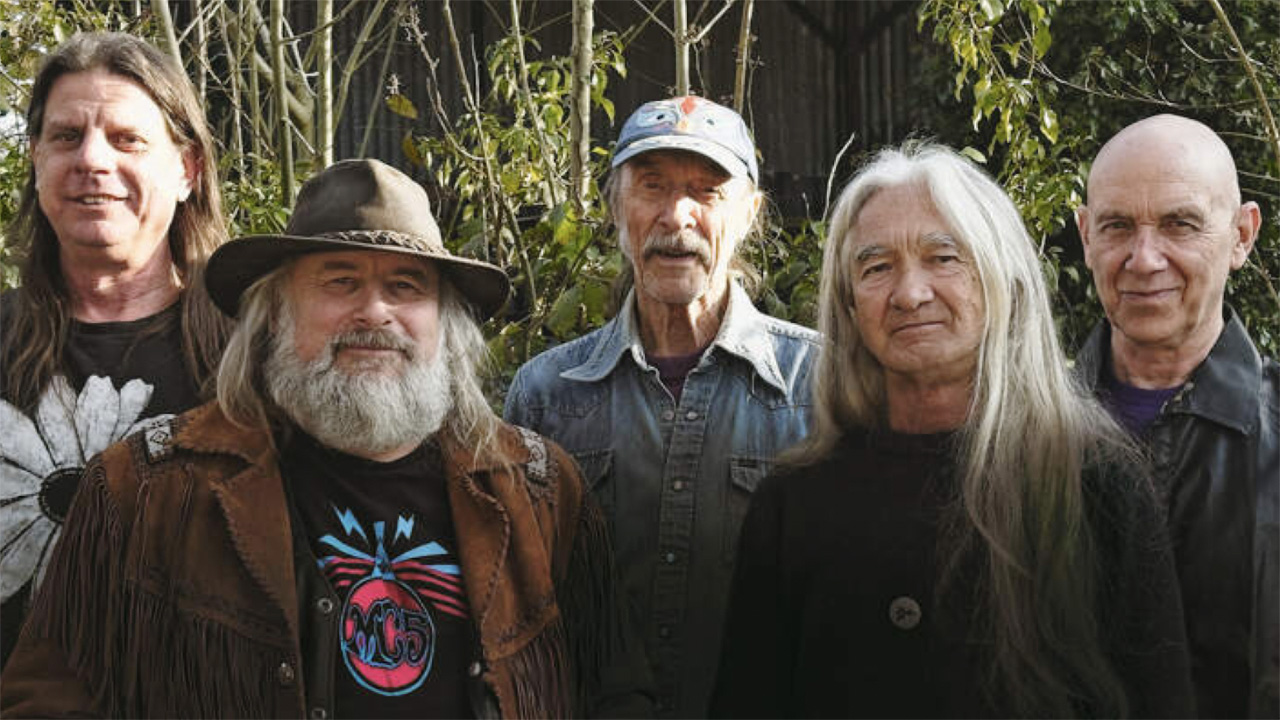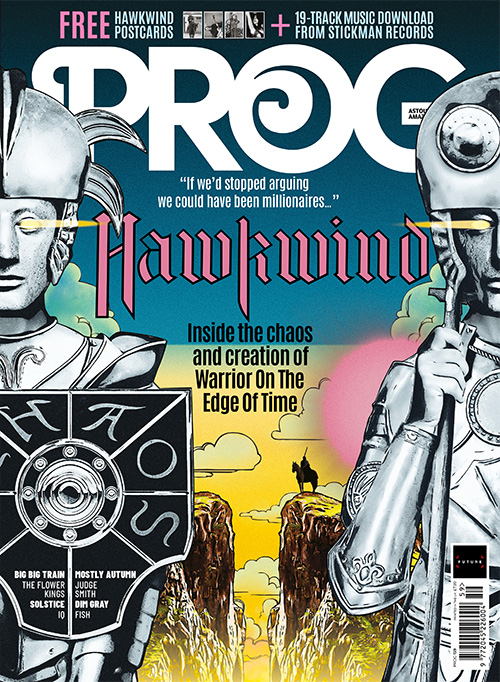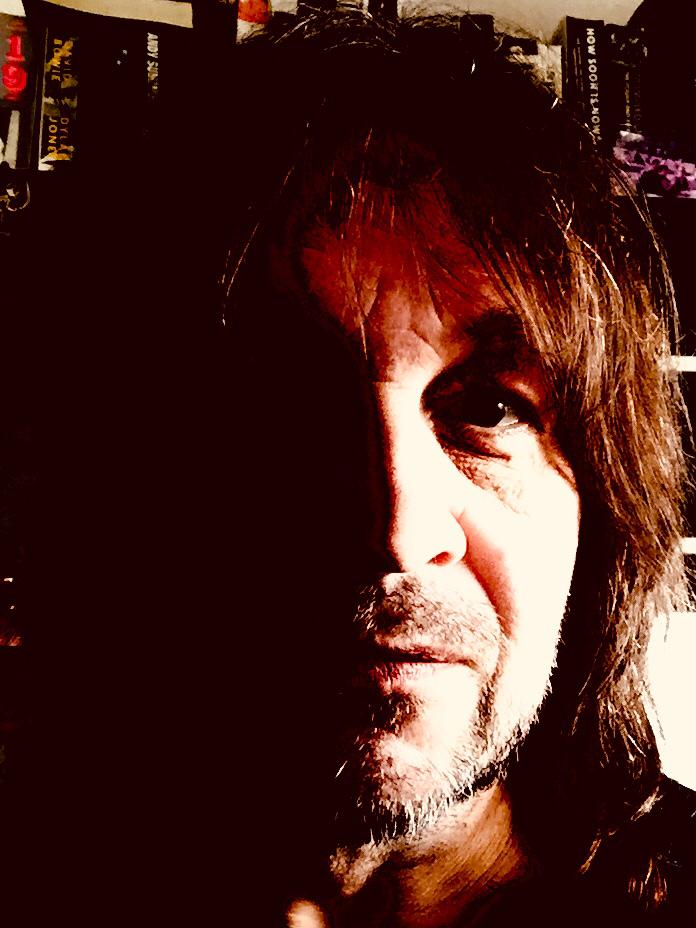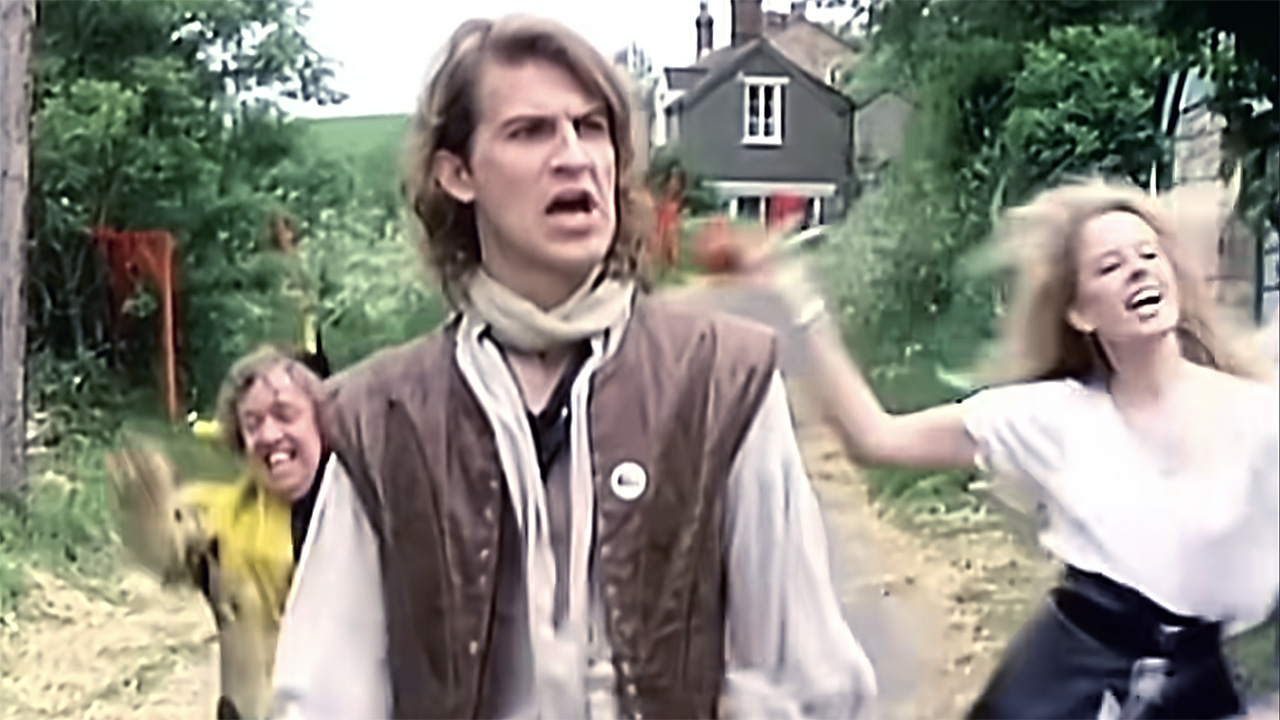“Obviously there’s some songs you get bored with. We go off on tangents, then come back into the old vocal refrain. That’s the way out”: What’s left for The Mighty Hawkwind to achieve? They have a few ideas
56 years and 37 studio albums in, Dave Brock’s band remain determined to push boundaries, harnessing new tech and new ideas while staying true to their focus on powerpacked live performances

Hawkwind are back bigger and bolder than ever with their 37th studio album, There Is No Space For Us, and they have no plans to hang up their silver machines just yet. The current line-up discuss the results of harnessing the latest technology for the greater good of art, their plans for the near future, and why they won’t be dropping classic tunes from their live shows any time soon – even if they want to.
As the progenitors of the form lovingly known as space rock, it can become a little too easy to second-guess Hawkwind; a band who, like post-punk pioneers The Fall, occupy that rare space where the prefix of ‘The Mighty’ is regularly and justifiably applied.
With the vapour trail that’s been left in their sonic wake since they blasted off from the countercultural mission control of Ladbroke Grove in the 60s through the free festival circuit of the 70s and beyond, Hawkwind haven’t exactly applied subtlety to their aesthetic in the shape of album titles that include In Search Of Space, Space Ritual and Space Bandits.
More recently, a string of albums with an increasing focus on dystopian themes that began with 2016’s The Machine Stops through to last year’s Stories From Time And Space seem to confirm the stereotype that’s settled around the image of Hawkwind.
But stereotype them at your peril: since the turn of the decade – which saw a global pandemic, the rise of populist demagogy and a geopolitical landscape that’s turned certainties on their heads – the band have consolidated their aural and thematic strengths thanks largely to what’s arguably their most solid line-up since their mid-70s prime.
Singer-guitarist Dave Brock remains at the helm, with longtime drummer Richard Chadwick at his side, while the addition of guitarist and keyboardist Magnus Martin, electronics wizard Tim ‘Thighpaulsandra’ Lewis and bassist Doug MacKinnon have all added a muscularity that startles and satisfies. And the fact they can draw from adversity to create There Is No Space For Us, their 37th studio album, proves they’re not resting on their laurels.
“We did an impromptu gig at the Forum in Bath last summer when one of the support bands didn’t turn up,” says Martin, explaining the origins of the latest record. “Tim, Dave and I did an ambient electronic set, which we sort of made up as we went along. We all enjoyed that experience; so when we went home, we started working in that direction.”
Sign up below to get the latest from Prog, plus exclusive special offers, direct to your inbox!
“It was a bit of an inspiration for us,” agrees Lewis with no little understatement. There Is No Space For Us is infused with the kind of electronic sweeps and soundscapes that informed fellow cosmic travellers Tangerine Dream on their groundbreaking Phaedra. Opening pair There Is Still Danger There and Space Continues (Lifeform) are propelled by undulating synthesisers and gurgling electronics that give way to linear beats and insistent, chugging guitars that temper rather than dominate.
Conceptually, the album deals with human greed that sees space exploration as an extension of the exploitation, voracity and, ultimately, destruction of the Earth. But with the state of world, and the likes of Elon Musk’s desire to reach and colonise Mars and beyond, isn’t there a danger of science fiction – once a tool of social commentary and examination through speculation and imagination – now becoming an instruction manual?
“It’s hard to come up with anything more ridiculous than what’s really happening,” says Martin, laughing darkly. “During lockdown I saw Boris Johnson giving instructions of what to do in emergency, and my immediate thought was, ‘This is virtually Sonic Attack!’”
“It’s sad, isn’t it, really?” says Brock. “But that’s the way it is; it’s most unfortunate. Humans haven’t actually advanced that much. Consider that, 60 years ago, we thought that perhaps we’d have come up with a different source of energy rather than gas and oil.”
But if the poor leadership of humanity is causing division and destruction whiel data is surrendered to artificial intelligence, Hawkwind remain committed to harnessing technology for the greater good of their art. “You can call up wonderful synthesisers on your computer,” says Brock. “I can sit there for hours on end mucking around, and get a few ideas together.
An album is almost like a sketch pad. The music should really take off when it’s being played live
Doug MacKinnon
“Magnus does the same. You can get the idea for the whole piece from them. You get the storyline, and the band meet up and we take things out. We also swap sound files, listen to them and work up ideas when we get together.”
“Yeah, the music grows quite organically,” says Martin. “When it’s finished it’s totally different to what we started off with.”
Adds Lewis: “There are always concepts floating around that coalesce into something else.”
That coalescence is at the foundation of what Brock is trying to achieve. Even after all this time, his degree of quality control in the music they release – and that’s before we look at what they achieve onstage – has remained high.
“The joy of making music is that you can listen back to your albums and actually feel reasonably satisfied,” he says. “But you always want to try and get better and do things differently. You’re never satisfied because you can always do better ––” He stops himself. “Crikey! It sounds like a school report I’m giving here!”
“Must try harder!” chuckles MacKinnon. “An album is almost like a sketch pad. The music should really take off when it’s being played live.”
“Music should always move forwards,” Brock agrees. “Classical music and pop music are regimented, but rock music is similar to jazz, because when things are working wonderfully well, you can ad lib and things get longer and better.”
As displayed by the live albums released by the current line-up – We Are Looking In On You and Live At The Royal Albert Hall – Hawkwind are certainly subscribing to that line of thought. Remaining cognisant of their legacy and heritage, this is not a tribute to a band from decades past; new material rests comfortably withing that made their name.
They’re a well-oiled machine that feeds off of each others’ talents while ensuring that, in tandem with lasers, lights and a full-on sensory overload, their core values of sonic destruction are uncompromised.
“It’s supposed to be an experience, just like it was in the 70s,” states MacKinnon.
“We get on really well,” says Lewis. “We’re all very much on the same page. We love playing together; it’s always great fun and it just naturally flows that way. When I was with Spiritualized we used to jam a lot; you learn not to overplay. It’s more about what you don’t do than what you do. And that’s true with Hawkwind to an extent, because there are four other people. Two of them are soloists – you’ve got to make room for those voices.”
You’ve got to appease the audience. We’re musicians, but we have to toe the line
Dave Brock
Balance and equilibrium form a crucial part of Hawkwind’s internal dynamics, and in their setlists, too. When it comes to preparing for a tour they look for a balance between wanting to present the material that they’ve been working on, and including the best nuggets of treasure trove in their back catalogue.
“Obviously there’s some songs you get bored with,” Brock admits. “But you’ve got to appease the audience. We’re musicians, but we have to toe the line. And if you play a lot of new numbers, obviously they get a bit pissed off because they want to hear a few old numbers. I’ve been to concerts and seen bands where I’ve thought, ‘Christ, I wish they’d stop playing new stuff and play some of those old songs we know so well!’”
But he’s been doing this too long not to find the reuquired happy medium. “We play old numbers, but actually go off on tangents, then we’ll come back into the old vocal refrain again. That’s the way out, really.”
The sonic power at the heart of Hawkwind’s live experience is being explored as the basis for their next studio project. As evidenced by the bonus disc of rehearsals in the CD edition of Live At The Royal Albert Hall, the band have succeeded in bottling their live lightning in the comfort of their control room. These aren’t some half-arsed jams, but the full onslaught of the band playing live with urgency and power.

According to Brock, fans have been clamouring for new material to be recorded this way. So, could it become a reality? “We’ve got all the mics set up and all we have to do is the press the button on the computer,” he says.
“The big problem is that we haven’t been able to get a great drum sound,” adds MacKinnon. “Now that Tim’s in the band, he’s pretty good at recording. He showed us where to put the microphones, which is what you hear on those rehearsal recordings. Hopefully we can forge ahead more in that direction.”
“It’d be great to rehearse all the new songs then try to record them,” says Lewis. “That would be an interesting way to do the next record. We’ll have to see if that comes to pass.”
There’s a comfort in knowing that Hawkwind are still pushing themselves forward while remaining true to their ideals. And it doesn’t look as if they’re ever going to stop. So, what’s left for The Mighty Hawkwind to achieve?
“My retirement!” jokes Brock (who’s 83).
“We’re not going to let him retire,” says Lewis reassuringly.
“You’ve got to keep on,” Brock states. “You hope that, through music and the words of the songs, you get through to the audience.”
Julian Marszalek is the former Reviews Editor of The Blues Magazine. He has written about music for Music365, Yahoo! Music, The Quietus, The Guardian, NME and Shindig! among many others. As the Deputy Online News Editor at Xfm he revealed exclusively that Nick Cave’s second novel was on the way. During his two-decade career, he’s interviewed the likes of Keith Richards, Jimmy Page and Ozzy Osbourne, and has been ranted at by John Lydon. He’s also in the select group of music journalists to have actually got on with Lou Reed. Marszalek taught music journalism at Middlesex University and co-ran the genre-fluid Stow Festival in Walthamstow for six years.





